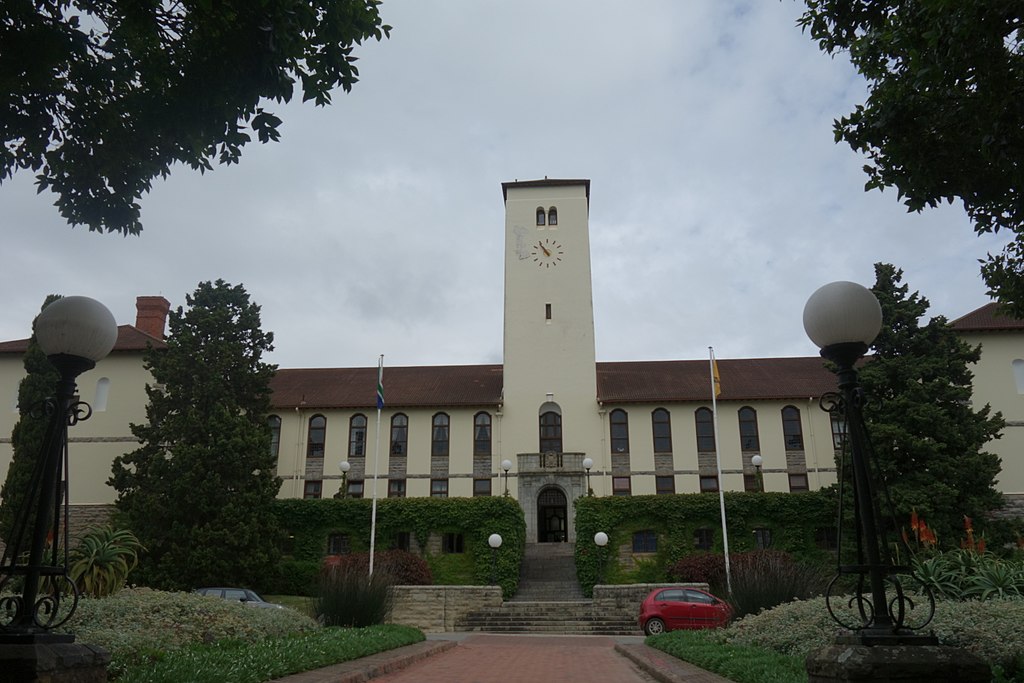What does Afrokology bring to media and communication studies?

CAMRI’s Winston Mano addressed the question of what does Afrokology bring to media and communication studies? as part of his participation in the Gender and Diversity Office Round Table on Decolonising African Media Studies at the ‘Medialities’ conference in July. The event was organised by Professor Christine Vogt-William, the Director of the Gender and Diversity Office (GDO), a unit within the Africa Multiple Cluster, a transcontinental research community with one location at the University of Bayreuth, Germany and 4 other African Cluster Centre locations at the universities of Moi, Ouagadougou, Lagos and Rhodes. Other roundtable participants included Dr. Wunpini Fatimata Mohammed, Dr. Sharon Omotoso, Dr. Cassandra Mark-Thiesen, Prof. Henriette Gunkel, Prof. Christine Hanke, Dr. des. Linda Besigiroha, deputy to the Director of the Africa Multiple Cluster GDO. The roundtable sought to consider how medialities have shaped academic and non-academic knowledge production as well opportunities and ruptures, specifically within African media and communication studies. It specifically invited discussion of decolonial endeavours as well the role of alternative or oppositional theorisations such as Afrokology, black philosophy, Postcolonialism, African feminist and intersectional scholarship made in transforming the field.
Mano pointed out that decolonising the field of media and communication studies could benefit from the Afrokological heuristic tool as propounded by Mano and milton (2021) in the Routledge Handbook of African Media and Communication Studies. The Afrokological toolkit advances an epistemological emancipation by decolonising theoretical and practical approaches. Afrokology of media and communication from the global South can be an urgent means to reaffirm the agentic capacities of the voiceless but also to reset the epistemic boundaries of existing knowledge and practice in medialities. Afrokology could help address remnants of coloniality and free up a geopolitical reimagination that challenges the ways in which hegemonic geopolitical narratives are established. Afrokology could reimagine how different worlds can coexist, not submitted in one reality, but in incommensurability.
Afrokology aims not just to move discussions away from the uncritical and wholesale embrace or complete rejection of received knowledges but to identify the incompleteness of dominant global North paradigms. This emphasis on pluriversality is a key aspect of Afrokology’s connectedness to decoloniality, which includes conscious acts of reclamation and validation. An Afrokological tool manifests in a double gesture: first, it demands a critical engagement with the incompleteness of dominant global North knowledge frameworks and remnants of coloniality. Secondly, it demands commitment towards decolonising media and communication studies, i.e. debunking narrowly defined approaches and reimagining present-futures of medialities from a global South perspective. In essence, Afrokology is deployed as a participatory, transdisciplinary and responsive framework underpinned by key values of conviviality and incompleteness, with emphasis on accommodating so-called “other” knowledges. It is in this context, that we mobilise Afrokology as a coalescing heuristic tool to centre previously marginalised and alternative theorisations from Africa and the global South.
The Afrokological tool draws from the concept of “conviviality” which allows one to unpack more innovative ways of making sense of multiple medialities in daily life. Afrokology as presented by Mano and Milton (2021) can help awaken a new relational accountability that promotes respectful representation, reciprocity in media and communication in line with the lived experiences of those it is meant to benefit. Mano disagreed with those who wanted to reserve African research for Africans. Being in London or in the global North does not mean one is less of a decolonial scholar. What matters is not is not your geographical location but one’s epistemological location as has been observed by Sabelo J. Ndlovu-Gatsheni, a leading decolonial Professor and Chair of Epistemologies of the Global South with Emphasis on Africa at the University of Bayreuth in Germany. While pushing back on othering, the Afrokological lense encourages a “convivial approach” that integrates and renegotiates knowledge and ideologies underpinning existing theories, frameworks and paradigms. It is not just quarrelling against the othering of African epistemes but also a convivial tool that centres African epistemes necessary for engaging with medialities from the continent. Afrokology is conversation with other approaches and therefore an invitation to a more nuanced decolonial dialogue. Decoloniality itself is not a destination but a journey with many opportunities, frustrations and challenges. We ought to maintain focus and critical hope in this emancipatory journey.
For further reading on Afrokology of media and communication, Winston Mano recommends Chapter 1; 2 and 19 from The Routledge Handbook of African Media and Communication (Mano and milton 2021), available here: https://www.routledge.com/Routledge-Handbook-of-African-Media-and-Communication-Studies/Mano-Milton/p/book/9781351273206)
Image by Vysotsky via WikiCommons.






